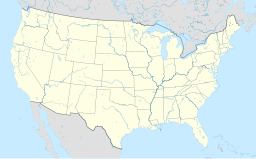Merion
| Merion | |
| Merion Station | |
| Unincorporated community | |
| Country | United States |
|---|---|
| State | Pennsylvania |
| County | Montgomery |
| Township | Lower Merion |
| Elevation | 233 ft (71.0 m) |
| Coordinates | 39°59′36″N 75°15′04″W / 39.99333°N 75.25111°WCoordinates: 39°59′36″N 75°15′04″W / 39.99333°N 75.25111°W |
| Timezone | EST (UTC-5) |
| - summer (DST) | EDT (UTC-4) |
| ZIP code | 19066 |
| Area code | 610 and 484 |
Merion – also known as Merion Station – is an unincorporated community in Lower Merion Township, Montgomery County, Pennsylvania, United States. One of the towns that make up the storied Philadelphia Main Line, it is contiguous to the City of Philadelphia, and is also bordered by the unincorporated communities of Wynnewood and Bala Cynwyd, and the borough of Narberth.
Merion Meeting House was built at the present intersection of Montgomery Avenue and Meetinghouse Lane in 1695 by Welsh settlers.
The General Wayne Inn and Merion Friends Meeting House are listed on the National Register of Historic Places. The Merion Friends Meeting House is also a National Historic Landmark.
The community was named after Merionethshire, Wales, the native home of a large share of the first settlers. Merion is often referred to as "Merion Station," as this is the place name that the United States Postal Service recommends using in order to distinguish Merion from other areas in Pennsylvania with similar names. However, the historical name of the town, used by historical figures such as Theodore Roosevelt, is Merion.
The Merion Civic Association was organized in 1913 by Edward W. Bok with the motto "To be Nation right and State right, we must first be Community right." The Merion Civic Association made several important improvements to Merion such as paving, better lighting, cast-iron street signs, better fire and police protection, and planned tree-planting. President Theodore Roosevelt wrote an article in 1917 for Bok's magazine entitled "Model Merion."
...
Wikipedia



